Embracing the International Day of Care and Support
As we stand at the crossroads of a changing world, there are certain undeniable realities that we must confront. People are living longer, and the global population of older individuals is on the rise.
This longevity is a cause for celebration, but it also demands our attention regarding the quality of life these individuals experience. In this blog, we explore the significance of caregiving in this context and its intersection with human rights, gender, disability, and age sensitivity.
The Essence of Caregiving
Our humanity is intrinsically linked to the wellness of individuals and communities. To uphold this wellness, we must prioritise the caregiving relationship. It is heartening to note that the United Nations has proclaimed an International Day of Care and Support, to be observed on 29 October. This day serves as a platform to delve deeper into caregiving systems, focusing on the rights of caregivers, be they formal or informal. The balancing act of caregiving rights is at the heart of the care economy.
Human Rights-Based Care
The International Day of Care and Support calls for us to consider the human rights of both caregivers and care recipients. How can we prioritize these rights while ensuring they don’t infringe upon one another?
Gender Responsiveness
Caregiving is a gendered issue, with women traditionally shouldering the bulk of the caregiving responsibilities. This often leads to women delaying or abandoning their own aspirations.
Disability Inclusivity
The United Nations urges member states to incorporate disability inclusivity into their care policies and programmes. This extends to a range of opportunities from the initial stages of sensitisation and understanding the unique needs of individuals with disabilities, to the complex processes of implementation – for example implementing universal design in facilities for older individuals.
Age Sensitivity
Care and support are required at all stages of life. However, the intensity of these needs varies. We must consciously acknowledge and address the unique challenges that different life stages bring.
The Global Perspective
In South Africa, the aging population has increased from 6.2% to 9.2% in just two decades, totalling 5.4 million individuals in 2023.
The caregiving dynamic is part of the broader care economy, encompassing paid and unpaid caregiving in all its forms. It’s essential for all of us to consider our roles as both caregivers and care recipients. Are we adequately prepared for these roles, and what support might we need?
The Way Forward
Tafta, as an organization, remains committed to its mission of bringing dignity, growth, and meaning to the lives of older individuals. This commitment extends to contributing to the overall well-being of communities.
However, the well-being of communities cannot be fully realized without considering the welfare of caregivers. A holistic approach to well-being is the cornerstone of sustainable development.zAs we approach the International Day of Care and Support, let us reflect on the importance of caregiving in our lives. It’s an opportunity to create a more inclusive, rights-based, gender-responsive, and age-sensitive caregiving system, ensuring that everyone can age with dignity and purpose. Let us strive to make the world a place where we all can proudly grow old.

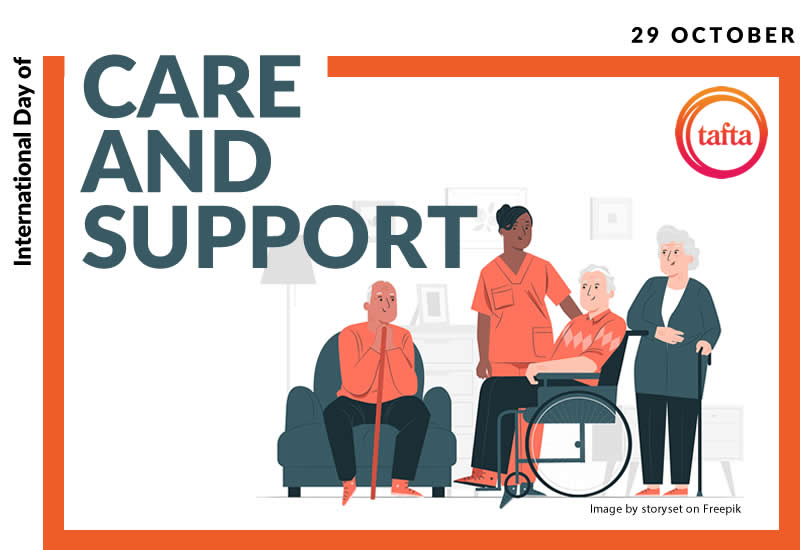
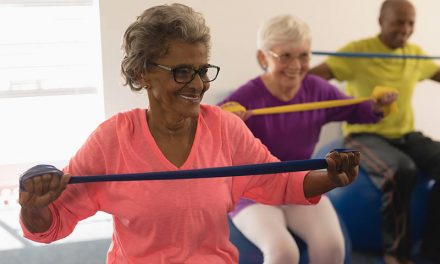
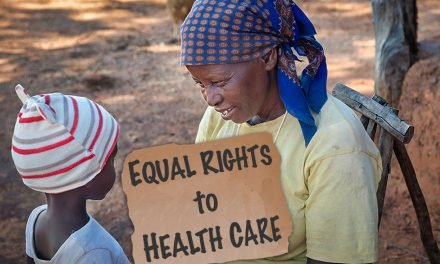


 Save tax with a Section 18A Certificate from Tafta
Save tax with a Section 18A Certificate from Tafta Tafta CEO, Femada Shamam shares her reflections on the SONA
Tafta CEO, Femada Shamam shares her reflections on the SONA Valentine’s Day on a budget – love that doesn’t cost a thing!
Valentine’s Day on a budget – love that doesn’t cost a thing!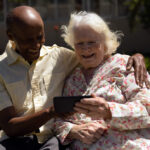 Age-readiness vs Age-friendliness – preparing South Africa for long life
Age-readiness vs Age-friendliness – preparing South Africa for long life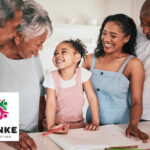 Sisonke – ‘we are together’ – is Tafta’s theme for 2026
Sisonke – ‘we are together’ – is Tafta’s theme for 2026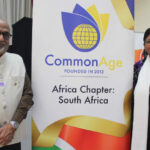 From Durban Social Worker to Global Champion for Older Persons
From Durban Social Worker to Global Champion for Older Persons Christmas joy – good food and good company, thanks to you!
Christmas joy – good food and good company, thanks to you! Robin Hood Foundation spreads love across Tafta Homes
Robin Hood Foundation spreads love across Tafta Homes 12 Days of Giving – spread joy to older people this Christmas
12 Days of Giving – spread joy to older people this Christmas Tafta resident pens powerful tribute to heritage and hope in new book
Tafta resident pens powerful tribute to heritage and hope in new book